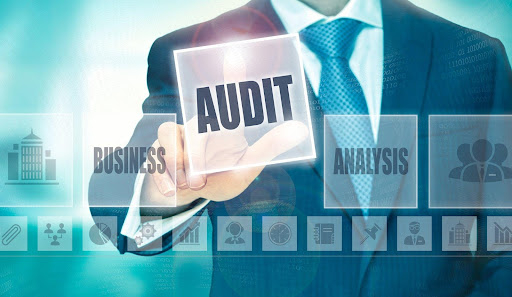Safeguarding the security and integrity of sensitive payment card information is critical. A PCI audit is a complete review of an organization’s conformity to the PCI SSC security regulations. We will discuss the what, why, and how of PCI audits.
We will reflect on their value in protecting financial data, the PCI audit process, and developing client confidence.
Continue reading to find out the what, why, and how of PCI audits.
What Is a Payment Card Industry Audit?
A payment card industry audit is a thorough study of an organization’s compliance with the PCI DSS. It is a set of security rules to secure cardholder data during payment card trades. The PCI DSS includes a variety of security rules and best practices.
It also has network security, access limits, data encryption, regular monitoring, and incident response preparation. These criteria include things like maintaining a safe network architecture.
Why Do You Need a Payment Card Industry Audit?
PCI audits’ primary purpose is to secure sensitive payment card information. It also avoids data breaches that might result in financial loss, fraud, or reputational harm. Several crucial elements will help you understand the “why” of PCI audits:
Protecting Cardholder Data
Payment card data breaches can have serious consequences. It also has financial losses, legal duties, and a tarnished brand. PCI audits ensure that firms have essential protection to avoid such breaches, protecting sensitive client data.
Reading Suggestion: How Long Do Idiots Live 12-15
Maintaining Trust
Customers are more inclined to do business with firms. It shows a commitment to data security. It also maintains compliance and shows its clients that they value their privacy.
Legal and Regulatory Requirements
Depending on the jurisdiction and industry, firms may be required by law to adhere to PCI DSS standards. Failure to do so may result in severe penalties and legal ramifications.
Avoiding Financial Losses
Cyberattacks and data breaches may result in significant financial losses. It also has penalties, legal fees, and expenditures connected with breach mitigation. Firms can reduce the risk of such financial disasters by complying with PCI DSS requirements.
Business Reputation
A single data leak may damage a company’s reputation. A strong security posture displayed by PCI compliance may improve an organization‘s reputation and build customer loyalty.
Steps to Compliance for PCI Audits
PCI audits are critical for assuring payment card data security and adhering to the PCI DSS. The following are the general steps to get PCI compliance via audits:
Assessment
The path to PCI compliance begins with an in-depth self-assessment. Organizations must assess their systems, procedures, and infrastructure. This could include comparing different secure payment methods, like stripe vs authorize, and implementing new business strategies to ensure compliance. This also detects holes in PCI DSS compliance.
Remediation
Organizations must take remedial action if deficiencies have been discovered. It might include putting in new security measures and revising rules. It also improves network infrastructure.
You can look for IT Services that offer customized and specialized solutions.
Documentation
A thorough record of security policies, processes, and practices is required. This documentation helps with audits. It also acts as a reference for staff who want to follow security best practices.
Validation
Validation may include self-assessment questionnaires and external vulnerability scans. It also has on-site audits by qualified security assessors, depending on the size and amount of transactions.
Understanding the Scope of a PCI Audit
PCI audits are crucial for any business to maintain existing security standards. It can ensure they are putting in the necessary preparation, policies, PCI requirements, and processes to pass. Reach out to a competent IT security expert if you need help knowing the extent of your PCI Audit.
Did you find this article helpful? If so, check out the rest of our blog for more informative content.























